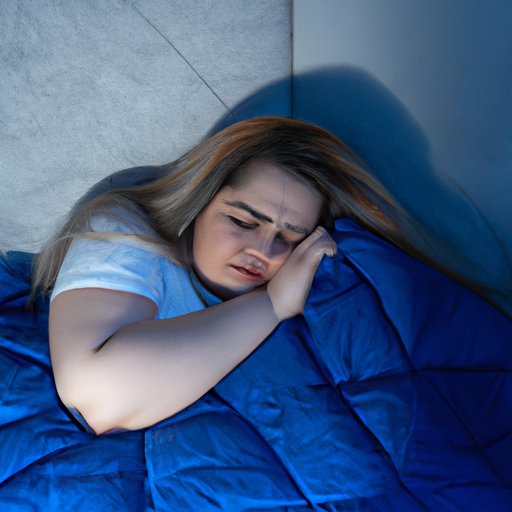
Introduction
Have you ever pulled an all-nighter in college or stayed up late to finish a project at work? You may think that losing a few hours of sleep isn’t a big deal, but the truth is that it can have serious consequences for your health and well-being.
Sleep is one of the most important things we do for our bodies. It’s the time when our brains and bodies recharge, repair, and reset for the next day. Unfortunately, a lack of sleep can lead to negative physical and mental effects that can impact every aspect of our lives.
In this article, we’ll explore the physical and mental effects of sleep deprivation, share scientific research on the importance of sleep, provide tips for getting better sleep, and offer motivational advice for prioritizing self-care.
The Physical Effects of Sleep Deprivation
One of the most noticeable effects of sleep deprivation is weight gain. Studies have shown that people who don’t get enough sleep are more likely to be overweight or obese. This is because sleep deprivation can lead to changes in the hormones that control hunger and fullness, causing us to eat more than we need to.
Another physical effect of sleep deprivation is decreased immune function. Lack of sleep has been linked to a weakened immune system, which can make us more susceptible to illnesses like colds and flu.
Finally, sleep deprivation has been shown to increase the risk of heart disease and stroke. When we don’t get enough sleep, our bodies release stress hormones that can raise our blood pressure and increase the risk of heart problems.
The Mental Effects of Sleep Deprivation
Sleep deprivation can also have a serious impact on our mental health. Studies have shown that people who don’t get enough sleep are more likely to suffer from depression and anxiety.
When we’re sleep-deprived, it can be harder to think clearly and make good decisions. Lack of sleep has been shown to decrease cognitive function, impacting our ability to learn and remember information.
Scientific Research on the Importance of Sleep
Scientists have been studying the effects of sleep (and lack thereof) for decades, and the research is clear: sleep is crucial for our physical and mental health.
According to one study, adults who regularly get less than 7 hours of sleep per night are at a higher risk of developing chronic conditions like obesity, diabetes, and cardiovascular disease. Another study found that people who don’t get enough sleep are more likely to experience negative emotions like anger, frustration, and sadness.
Tips for Getting Better Sleep
If you’re having trouble getting enough sleep, there are some simple things you can do to improve your habits:
1. Setting a consistent bedtime: Try to go to bed and wake up at the same time every day, even on weekends.
2. Avoiding screen time before bed: The blue light from electronic devices can interfere with our sleep patterns. Try reading a book or taking a bath instead.
3. Creating a relaxing sleep environment: Make sure your bedroom is cool, dark, and quiet. Invest in a comfortable mattress and pillows.
4. Other practical advice for improving sleep habits: Avoid caffeine and alcohol before bed, exercise regularly, and try relaxation techniques like deep breathing or meditation.
Motivational Advice for Prioritizing Self-Care
Getting enough sleep is a key part of self-care, but it can be hard to make changes to our sleep habits.
If you’re struggling to prioritize self-care, remember that taking care of yourself is essential for your physical and mental health. Getting enough sleep can help you feel more energized, focused, and productive.
The best way to make positive changes to your sleep habits is to start small. Pick one habit to work on, like going to bed 15 minutes earlier or turning off your phone an hour before bedtime. Celebrate small victories and remember that progress is more important than perfection.
Conclusion
Sleep deprivation can have serious consequences for our physical and mental health. It’s important to prioritize self-care and make getting enough sleep a priority.
By setting a consistent bedtime, avoiding screens before bed, and creating a relaxing sleep environment, you can improve your sleep habits and reap the benefits of better sleep.
Remember, taking care of yourself is not selfish.




